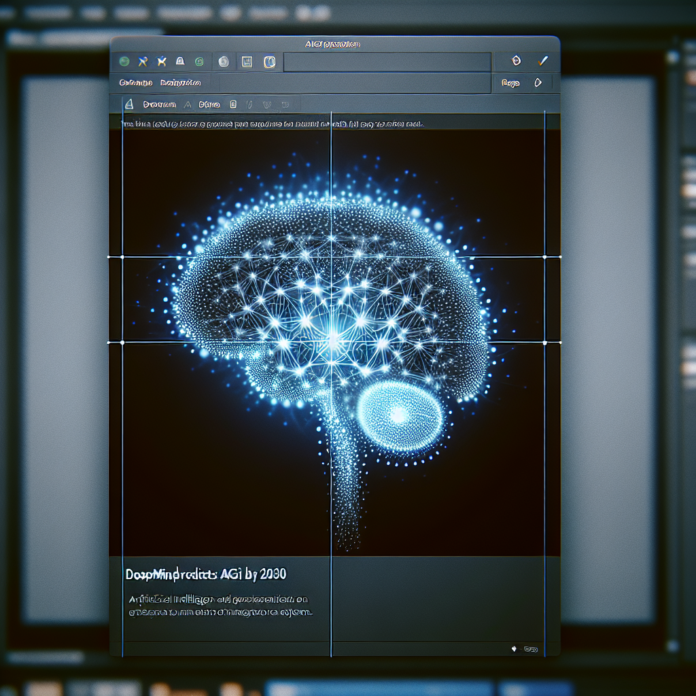Introduction
Artificial General Intelligence (AGI) has long been a goal in the field of artificial intelligence, representing systems capable of performing any intellectual task that a human can. Recently, Demis Hassabis, CEO of Google DeepMind, predicted that AGI could emerge within the next five to ten years, potentially by 2030. This projection has sparked discussions about the feasibility, implications, and challenges associated with achieving AGI within this timeframe.
Understanding AGI and Its Significance
AGI refers to AI systems that possess the ability to understand, learn, and apply knowledge across a wide range of tasks, much like a human being. Unlike narrow AI, which is designed for specific tasks, AGI aims for versatility and adaptability. Achieving AGI could revolutionize industries by automating complex processes, enhancing decision-making, and driving innovation across various sectors.
DeepMind’s Perspective on AGI Development
Demis Hassabis has expressed optimism about AGI’s development, suggesting that with current progress, AGI could be realized within a decade. He emphasizes the need for AI systems to develop a real-world understanding, enabling them to apply planning and problem-solving skills beyond controlled environments. Hassabis acknowledges that while current AI systems are impressive in specific domains, significant research is required to achieve the comprehensive capabilities characteristic of AGI. [Source]
Challenges on the Path to AGI
Despite the optimistic projections, several challenges remain in developing AGI:
- Technical Hurdles: Creating systems that can generalize learning across diverse tasks and environments is complex and requires significant advancements in AI research.
- Ethical Considerations: Ensuring that AGI systems align with human values and operate safely is paramount to prevent unintended consequences.
- Resource Intensiveness: Developing AGI demands substantial computational resources, energy, and financial investment, raising questions about sustainability and accessibility.
Industry Perspectives and Timelines
While DeepMind’s prediction places AGI within the next decade, other industry leaders offer varying timelines. Some anticipate AGI’s arrival within a few years, while others believe it may take longer. This divergence underscores the uncertainty and complexity inherent in AGI development. Additionally, the rapid pace of AI advancements has led to increased investments and a race among tech companies to achieve AGI, further fueling the debate over realistic timelines. [Source]
Conclusion
DeepMind’s prediction of achieving AGI by 2030 highlights the rapid advancements in artificial intelligence and the growing confidence in reaching this milestone. However, realizing AGI involves overcoming significant technical, ethical, and resource-related challenges. As the AI community continues to innovate, it is crucial to approach AGI development with caution, ensuring that these powerful systems are designed and implemented responsibly to benefit society as a whole.





























